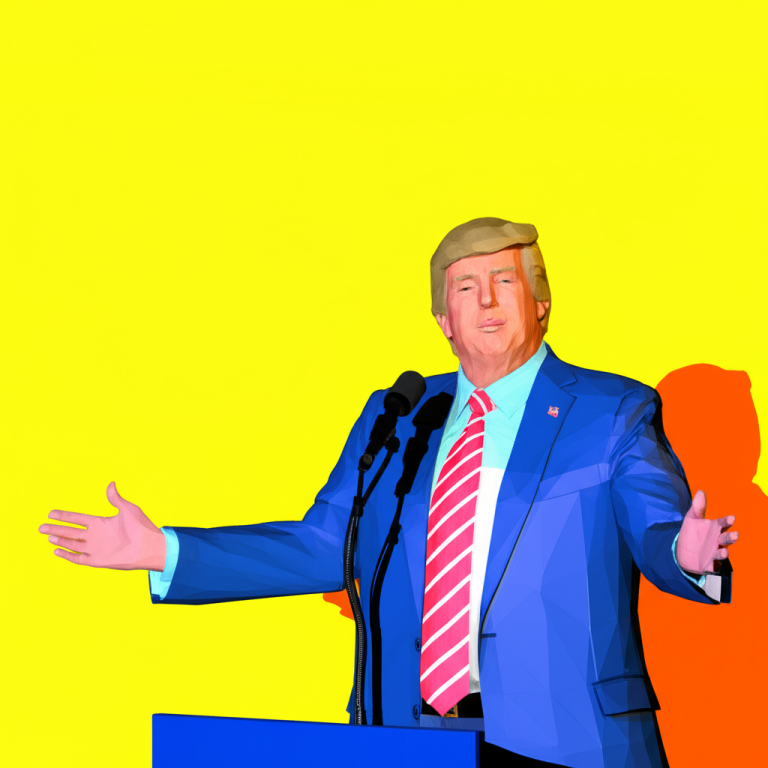The Intersection of Cryptocurrency and Political Influence: A Case Study in Policy Shaping
The Emergence of Digital Currency in Political Arenas
In recent years, the cryptocurrency market has evolved into a new battleground for capital and power struggles. A recent news report about an “AI company planning to spend $20 million on Trump-related cryptocurrencies to influence U.S. trade policy” (though not directly mentioned in authoritative sources) has sparked discussions about how digital currencies can infiltrate policy-making processes. By analyzing publicly available information, we can see that the Trump family and its affiliated enterprises have made significant moves in the crypto space—from a $2.9 billion increase in crypto assets to a $20 billion stablecoin investment by the MGX Group in the UAE, and the launch of ETFs and utility tokens by Trump Media & Technology Group (TMTG). These developments reveal the potential leverage of cryptocurrencies in political and economic realms.
The Trump Family’s Crypto Empire: Strategies for Wealth Expansion
The $2.9 Billion Surge and Capital Networks
According to the non-partisan organization State Democracy Defenders Action, the Trump family has rapidly accumulated crypto assets, reaching 40% of their net worth through the issuance of meme coins like $TRUMP and $MELANIA, and investments in the World Liberty Financial exchange. This swift accumulation relies not only on market speculation but also on cross-border capital flows facilitated by partnerships with entities like the MGX Group in the UAE. The MGX Group invested $20 billion in World Liberty’s stablecoin USD1 and plans to inject funds into major exchanges like Binance. This strategy circumvents traditional financial regulations while providing a gray channel for international capital to influence U.S. policies.
From Social Media to FinTech: A Comprehensive Strategy
TMTG’s Truth.Fi brand is pivotal in this strategy. On one hand, it collaborates with Crypto.com to launch ETFs and independent managed accounts (SMAs) focused on “America First.” On the other hand, it plans to issue utility tokens and digital wallets tied to the Truth+ streaming platform. This integrated “social + financial + content” framework essentially creates a closed-loop ecosystem where user attention is converted into trading volume, and political narratives are monetized through token economics.
Mechanisms of Crypto Influence in Policy-Making
The Digital Reconstruction of Lobbying Capital
Traditional political donations are strictly regulated by the Federal Election Campaign Act, but crypto donations remain in a regulatory gray area. If an AI company were to invest $20 million in specific politically affiliated tokens (as hypothesized), the funds could be directed through smart contracts to support particular policy issues. Mechanisms like on-chain voting weight allocation and DAO proposals could become new lobbying tools.
Algorithm-Driven Opinion Manipulation Experiments
The Truth Social platform, under TMTG, has amassed a significant amount of conservative user data. Combined with the upcoming digital wallet functionality, this ecosystem can precisely target political ads or initiate topic-driven movements through on-chain behavior analysis. The involvement of AI companies could further enhance this process by optimizing emotional guidance strategies for token holders and even simulating the economic impact of trade policy changes on specific token-holding groups.
Risk Alert: Regulatory Lag and Systemic Vulnerabilities
Currently, U.S. crypto regulations are contradictory: the SEC is cautious about approving spot ETFs but has not prevented institutions like TMTG from entering through SMAs; the CFTC classifies some tokens as commodities but lacks cross-border cooperation frameworks. This fragmented management allows foreign entities like MGX to indirectly influence U.S. financial infrastructure through stablecoin investments, while blockchain-based political donations are even harder to trace.
Conclusion: When Code Becomes the New Language of Power
Whether it’s the confirmed $2.9 billion wealth increase or the hypothetical scenario of an AI company’s intervention, cryptocurrencies are reshaping the dynamics of power. As transaction addresses replace bank accounts as conduits for interest transfers, the idealistic narrative of “decentralization” hides more concealed risks of centralized control. In the next five years, “algorithm-driven lobbying” could become a more efficient policy-shaping tool than traditional K Street lobbying, unless legislators can overcome technological barriers and establish international monitoring alliances.
資料來源:
[1] www.cbsnews.com
[3] fortune.com
[4] fortune.com
Powered By YOHO AI





